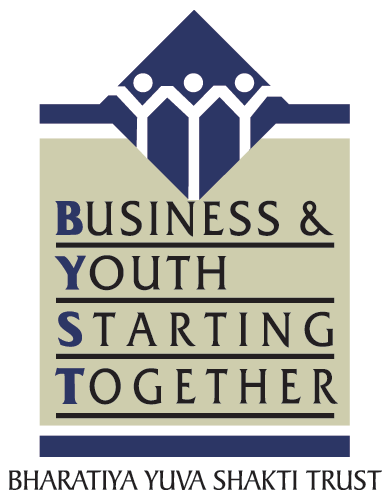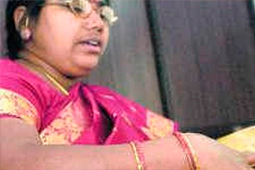BYST hopes to raise the rest of the money from a variety of sources corporate foundations, high net worth individual investors, including those from the Silicon Valley.
An organisation that has as exciting a story to tell as that of Pradeep Lamba, the Faridabad-based maker of corrugated boxes, is bound to go places. With support and mentoring from the Bharatiya Yuva Shakti Trust (BYST), in 1992 Lamba started his unit, serving the packaging industry. With rapid growth, in a few years his turnover went up from Rs 50,000 to Rs 50 lakh. Then disaster struck in 1997, when a fire destroyed almost everything he had set up. His turnover plummeted from Rs 50 lakh to Rs 5 lakh. “But his mentor, Brigadier Sahukar, an 80-year-old man who was at JK Corp then, said as a military man, `I don’t care what you have to do, but get back on your feet’. Today his turnover is Rs 3 crore,” says Lakshmi V. Venkatesan, Founding Trustee and Executive Vice President of BYST.
In 1992, she along with JRD Tata set up this NGO, which has over the years created 14,000 entrepreneurs from the unprivileged classes, turning jobseekers into job creators. “Every person we support creates 10 jobs; for every rupee we lend they create 10 rupees in wealth. Amazing things happen when we take on board entrepreneurs with fire in their belly, people from the grassroots who are not willing to sit back, support them with loans and mentoring which is the key.” Criteria for BYST help 18-35 age group and a lower economic status.
A group of BYST’s entrepreneurs have catapulted their business ventures to such a high, that the BYST is creating for 50 of its entrepreneurs, whose turnover has exceeded Rs 1 crore, a venture fund with a social objective.
Challenge from banks
But the challenge for the BYST “particularly for those who have grown from Rs 50,000 over a few years to Rs 50 lakh-1 crore, is that banks are still talking about assets and collateral and security. You take a loan, get a six-month moratorium, and you have to start paying back,” says Lakshmi.
She argues that the IT industry has had a spectacular growth thanks to access to the concept of venture capital where loans didn’t have to be returned immediately. But while the IT companies had an exit route either through IPOs or the M&A route, this is not possible for BYST entrepreneurs. “These people are not going to do an IPO, at least not in the near future. And they are not going to make acquisitions.”
So BYST had to innovate; after discussions with venture funds such as Infinity and examining international benchmarks, it has hit upon the concept of a venture fund with a social objective that will give its entrepreneurs loans from Rs 25 lakh to Rs 1.5 crore, with guarantees in place from the BYST side. “We told them that since we can’t repay the money even after five years through an IPO or M&A, how about taking a percentage of stake in my royalty either my profit margin or revenues.”
The result is the setting up of the BYST Growth Fund, with a seed capital of half a million dollars from the IFC. Beginning with this seed capital the plan is to step up the fund to $3-5 million through various means. If this growth fund is a success, the IFC will replicate the venture in other countries.
Lakshmi says that while the Youth Business International is present in 40 countries, “none of them have grown to our size as we always think of innovative ways to keep growing.”
Explaining how the loans would be given, she says: “Suppose Lamba is given a Rs 1 crore loan, he’ll return it this way; a certain amount will be in the form of equity less than 5 per cent that will be repurchased after fresh valuation at a stipulated time. The borrowers will also pay a certain percentage of their royalty either profits or revenue.”
A certain percentage would be plain debt, with the interest component being that charged by commercial banks. The ratio component will depend on whether it is a fast-growing company but with low profit margin, or one with a much higher profit margin.
BYST hopes to raise the rest of the money from a variety of sources corporate foundations, high net worth individual investors, including those from the Silicon Valley. “I’d say the closest comparison is to the angel investor funds which are a little more socially driven. We’re promising a return of around 5 to 6 per cent, which is not bad, because we’re also giving them the social dividend of employment and wealth creation.” On her radar are people such as “some of our Board members I can’t give you names as yet, entrepreneurs who have sold their companies, people who have done IPOs and got huge money.”
The fund is being outsourced and will be managed by the Andhra Pradesh Industrial Development Corporation. At the moment only BYST entrepreneurs will get loans from it, but once it is fine-tuned, it would be opened to others. “There is no reason why India cannot use a $300 million fund because there are immense possibilities in all regions of the country.”
Core strength
BYST’s strength is that it not only closely knows its entrepreneurs but also regularly tracks their businesses through its mentors. She is amazed by the BYST members’ capacity to raise the bar all the time. “The extent to which you can develop leadership and growth in an individual is unlimited. Not only do many entrepreneurs speedily absorb what the mentors tell them, they quickly graduate and are ready to move further up.”
The Fund is being registered by SEBI and hopes to be operational by the yearend. BYST has an ambitious growth plan; growing from 3,000 to 30,000 mentors around the country and to create from 10,000 to 1 million jobs within 10 years. “We’re upgrading our mentors’ skills by training and international accreditation. City & Guilds, a UK-based international accreditation agency, is going to accredit our mentors,” adds Lakshmi.
For the smaller entrepreneurs who need loans of only Rs 2-4 lakh, BYST is latching on to the credit guarantee scheme of the Government of India where a chunk of the loan is guaranteed by the government. “This is not something new, even earlier banks were told either you lend money to the priority sector or land your money in government securities. But that’s not an option now. Now with the credit guarantee scheme the government is clearly telling the banks: `Thou shall lend!’
Says T.L. Viswanathan, Chair of the strategic committee, BYST, Chennai chapter, “We realised there is so much money lying in banks because the question of collateral comes up. And right now there is a lot of talk of public-private partnership, so we thought of taking the bull by its horns, talked to Chairman of Indian Bank as also a private bank. We’ve signed an MoU to do a pilot with Indian Bank in Chennai. We will give them about 60 entrepreneurs who have graduated and done well; they require loans up to Rs 5 lakh. We’ve guaranteed continued mentoring, so they have good quality entrepreneurs.”
Lakshmi adds that BYST has an ambitious goal of creating one-lakh entrepreneurs who will in turn create one million jobs. “Our core strength is that we are creating this private-public partnership, not for airports and roads, but for youth entrepreneurship. And in this task we seek partnership from banks and people with business experience to serve as mentors. Another partnership missing in the loop is infrastructure. Most businesses need commercial places to operate from. They cannot operate in a shed or a backyard even in a rural area, because you need high quality power connection, transport and connectivity. We need help in this area so we can continue to grow quality entrepreneurs.”
Even in rural areas, there is potential, as was proved by Pushpa, a Std VIII dropout from rural Andhra Pradesh. She started making
murukku
in 2001, soon moved to packaging; today her turnover is close to Rs 1 crore and she employs 100 people. She has requested for a loan of Rs 75 lakh!
Mentor’s challenge
BYST’s T.L. Viswanathan, a mentor himself, says this task is like bringing up your child, look after his economic health and help develop soft skills and leadership qualities. One of his wards Ganapathi, who makes tubelights, came to him one night and said: “I’m fed up and will commit suicide.” He was facing finance problems and the family did not cooperate with him. “I told him that such challenges abound in day-to-day life, and much more in an entrepreneur’s life.” Apart from counselling he also asked him to do pranayama, and slowly the problems were resolved.
Lakshmi Venkatesan relates the case of Manisha Kirad of Pune, who has won this year the Citi Bank award for social entrepreneurship. A well-educated woman, when her father suddenly died the responsibility of running the family fell on her. “All she knew and was trained in was plastic reprocessing. But they said plastics in that region was very male dominated, and she couldn’t survive.”
But she said, `I have no choice’; today not only has she topped a Rs 50 lakh turnover in four years, she also employs destitute women and has helped three women set up their own businesses by lending them money. This way she has become a mentor on her own initiative.
Viswanathan talks about another ward in Chennai, Bala Muraugan, technically a very creative man who made electronic water controllers. “But suddenly, without consulting me, he entered into a marketing arrangement with somebody; when I questioned him on the details he became cagey. Nine months later he said: `I’ll close down as the other man has cheated me; I made a big mistake and should have come to you earlier. Now what do I do?’”
As his USP was after-sales servicing he had even given his home number on the product pamphlet and he had a good rapport with his clients he was able to come out of the mess.
Lakshmi recalls the case of Anisha Begum, a burqa-clad Muslim woman from Delhi, who made herbal shampoos. “Somebody who couldn’t open her mouth in the beginning ended up employing her husband, her sons and five other men. The story of how she confronted a supplier and got her product back has become legend. But the finances were taken over by her husband, he divorced her six years ago, took all the money and walked out. She was devastated, emotionally and economically, but today she is back on her feet and making a turnover of Rs 8 lakh. But for this setback, it would have been around Rs 40 to 50 lakh; but we said `you can’t give up’.”
In Chennai, Rajeswari, who supplies consumables such as paper and other stationery to the IT industry, has a turnover of Rs 21 lakh and is projecting a growth to Rs 60 lakh. She hails from a lower-middle class, conservative family. “Her mother says that earlier `I was looking for a marriage proposal for her; but in the last few years I only ask: How is the business doing’,” adds Lakshmi.



